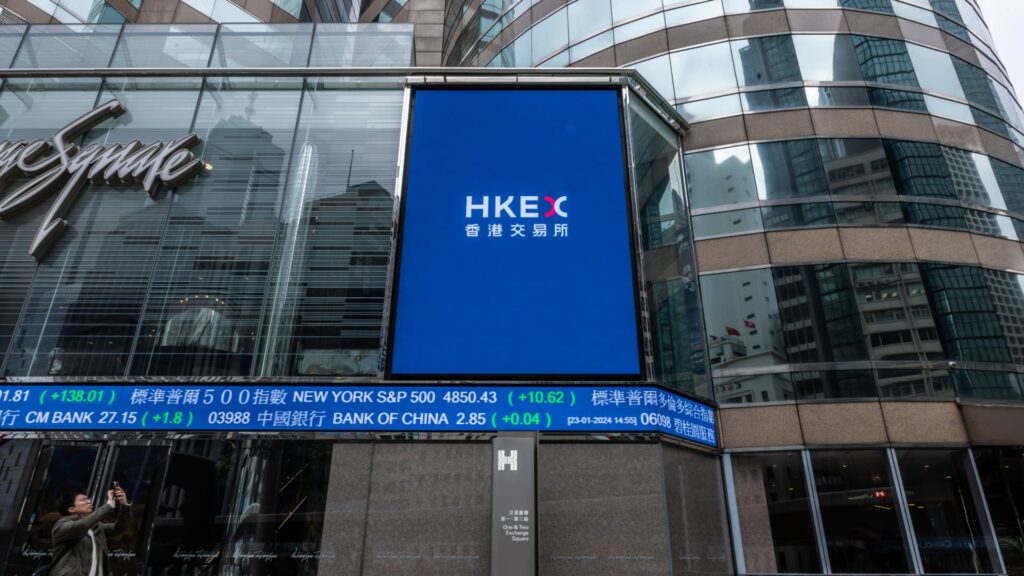
After three straight years of decline, Chinese tech company Tencent is poised for gains in 2024. The stock is up more than 3% for the year so far, in contrast with a decline of more than 4% in Hong Kong’s main Hang Seng Index. Tencent, largely known for its gaming and social media businesses, is the biggest stock in the index with a market capitalization of more than $350 billion. The first quarter should “mark the trough” in Tencent’s games business, Morgan Stanley equity analyst Gary Yu and a team said in a report on April 14. “We expect games growth to be down 4% YoY (vs cons down 3% YoY) mainly due to soft domestic growth. That said, our previous expectation of 2Q seeing an inflection point remains intact.” The firm is overweight on Tencent shares, with a price target of 400 Hong Kong dollars ($51). That’s more than 30% above where the stock closed Friday. Chinese authorities resumed approvals of Tencent’s games in late 2022 after a freeze of more than a year. When asked in late March about the risk of new restrictions, management said that regulators have made it clear they intend to “provide a healthy environment for growing the industry rather than constraining the industry.” That’s according to a FactSet transcript of an earnings call. Most of Tencent’s gains this year have come after that quarterly earnings report. The company’s other major revenue generators include advertising, financial technology and business services. “Among our [Asia ex-Japan internet] stock coverage, Tencent is our top pick considering its diversified business models and margin expansion story,” Jefferies analysts said in a note on April 17 about their meetings in the last week with European investors. Also helping analysts’ optimism on the stock are Tencent’s share buybacks. Morgan Stanley’s Yu pointed out that Tencent has announced it would repurchase at least $13 billion in 2024 — more than double last year’s buyback program — for a yield of about 5%. The buybacks offset an ongoing sell-down by Prosus of its holdings in the Chinese company to fund its own share repurchase program. Prosus is a Netherlands-based company owned by Naspers, an early investor in Tencent. “Based on Prosus’ current run-rate of share sale in 1Q24, Tencent’s total buyback for 2024 will be around 2 times of Prosus’ share sale,” Charlene Liu, HSBC’s Head of Internet and Gaming Research, Asia Pacific, said in a report on April 16. “Tencent has increased its daily buyback to HKD1bn/day from HKD500m/day since mid-January,” the report said. HSBC has a buy rating on Tencent, with a target price of 385 Hong Kong dollars. The investment firm also expects Tencent’s game business to turn around soon, albeit not until the second half of this year. “While the inability to undertake buybacks during the blackout period [one month before earnings] can weigh on the share price near term, a persistent recovery in the games business and resilient growth from ads, fintech and business services can help to sustain earnings growth supported by improving margin,” the HSBC report said. Tencent is set to release first quarter results on May 14. Chinese internet companies Alibaba and JD.com have also announced share buyback programs this year. “I believe that we’re definitely seeing more mature performances or behavior patterns, if you will, especially for the list[ed] companies to do buybacks, to do dividends,” Grant Pan, CFO of China-based wealth management firm Noah Holdings, told me in an interview Friday. “In the past predominantly it’s a valuation-driven stock market,” he said. “But now I think people are really not just looking for the valuation but [the] actual value of the company. Instead of looking for multiples they’re looking for the earning power.” Pan said that low liquidity in Hong Kong has also affected share prices in that market, but he hopes that can improve with a new CEO. The Hong Kong exchange’s co-COO Bonnie Chan is set to become head of the business in late May. Noah’s clients have also started inquiring more over the last two to three quarters about investments in China, Pan said, noting that prices are nearing a level at which there may be opportunities to buy. — CNBC’s Michael Bloom contributed to this report.






